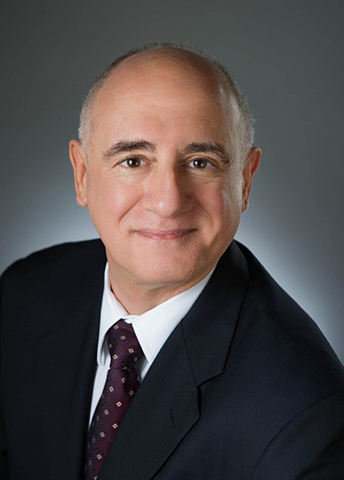
A provider’s perspective on the limited access to mental health care
Dr. Philip R. Muskin
Professor of Psychiatry
Columbia University Medical Center
As a practicing psychiatrist and patient advocate, I strongly believe that equal treatment and quality care should apply to someone who has a chronic mental health illness, like schizophrenia or major depressive disorder, requiring ongoing therapeutic and complex medical management, just as would apply to a patient in need of cardiovascular treatment or other chronic medical issue.
I’m troubled and frustrated by the rash of recent studies finding that patients across the United States are unable to obtain a timely appointment with a local mental health provider, notably a psychiatrist, who accepts their insurance coverage. This growing problem, old news to those of us practicing in the field, is multi-faceted and a fix will require a significant commitment to change on the part of many involved in the delivery and financing of health care. Unfortunately, it’s not clear such a commitment yet exists.
Healthcare network inadequacies
As reported on CFYM by MHA NJ, health network inadequacies include both out-of-date contact information, providers who are no longer participating, and practitioners who are deceased. The insurance companies who maintain the network listings need to take responsibility to ensure that the providers in their directories are indeed still part of their networks, and that their contact information is kept current.
In addition to provider network inaccuracies, there are additional hurdles our profession faces, which ultimately present challenges to our patients’ access to the care that they need and deserve.
An aging population, a shrinking field
The American Association of Geriatric Psychiatrists cites a 2011-2012 IOM study that reveals the number of elderly adults with mental health illnesses will double by 2030. Unfortunately, there won’t be enough psychiatrists to take care of all of these older adults because psychiatry is an aging field whose members are diminishing in numbers. In 2011, more than half of practicing psychiatrists were 55 years and older.
Our resupply rate is way too low. One reason: years ago, the federal government downsized the funding of Graduate Medical Education (GME) psychiatry residency programs because the government believed that there were too many psychiatrists.
Fast forward to the present: there are fewer residency slots, and those are mostly in more appealing urban areas, as opposed to regions that are typically underserved, such as rural or low socioeconomic settings.
Young people are leaving medical school with tremendous debt and they want to be on an even playing field when it comes to their livelihoods. While loan forgiveness programs may help to entice some practitioners into underserved regions, more needs to be done to attract young doctors into the field of psychiatry.
Inadequate insurance payments
The way in which psychiatrists are reimbursed for the care we provide patients differs greatly from other physician specialties. For example, an internist or family physician who sees a patient for six (6) minutes will be reimbursed by the insurance company $83 for that service. One of my psychiatry colleagues might see his or her patient for 45 minutes and be reimbursed the same $83. I would argue that these 45 minutes are just as valuable a service to patients in need of complex psychiatric treatment, and yet, the internist is being reimbursed $13.80/per minute of service, while the psychiatrist is getting paid the equivalent of $1.80/per minute of service. From the standpoint of earnings, psychiatry has become less attractive than most other areas of medical practice. Left unchanged, this problem is going to escalate over time, leaving an already serious workforce shortage to grow unfettered and patients scrambling for the care they need and deserve.
What can patients do?
Is there something that a patient or caregiver can do to facilitate getting the care that is needed? Absolutely!
- First, let go of the stigma associated with having a long term, chronic mental illness. When people have a chronic medical issue they deserve to get their medicine and treatment without being embarrassed.
- Understand your benefits. If a patient or caregiver has trouble finding a provider, he or she should seek assistance from the human resources department (if the insurance comes from the employer), health plan, or local patient advocacy organizations.
- Understand your rights. In many states, you are entitled to a care provider and the insurance carrier must help you secure the appropriate care. If no in-network providers are available, patients are entitled to an “in-network exception” which allows treatment by a non-network provider willing to accept a fair payment provided by the health plan within a 45-mile or a one-hour drive.
- Check with your local hospitals, especially teaching hospitals, as they may have a mental health clinic to evaluate and refer patients to clinic staff. Patients will be properly evaluated to ascertain exactly what their needs might be, e.g., do they need a psychiatrist or a psychologist or other mental health care provider? What exactly does their condition warrant? After the assessment, these clinics typically assist patients by referring them to an affiliated mental health practitioner who accepts the patient’s insurance and/or provides care to the uninsured.
Regardless of the steps you take, the important thing is to take some type of action. Otherwise we will be having this same discussion five years from now.
Questions
- What experiences have you had that indicate a shortage of psychiatrists?
- What will you do to pressure the new Congress to complete unfinished work such as the Positive Aging Act (S. 525), which had bi-partisan support to improve mental health care access for older adults?
- What changes in public policy do you think would increase the number of practicing psychiatrists?
Philip R. Muskin, MD, is professor of psychiatry and Chief of Consultation-Liaison Psychiatry at Columbia University Medical Center. His research and publications include mood disorders and AIDS, panic disorder, and treatment of anxiety and depression in medically-ill patients. He is the editor of a number of works published by American Psychiatric Publishing including Complementary and Alternative Medicine and Psychiatry, and the first self-exam guide on the DSM. Dr. Muskin is a Distinguished Fellow of the American Psychiatric Association, a Fellow of the Academy for Psychosomatic Medicine, and a Distinguished Life Fellow of the Association for Academic Psychiatry.









Connect With Us